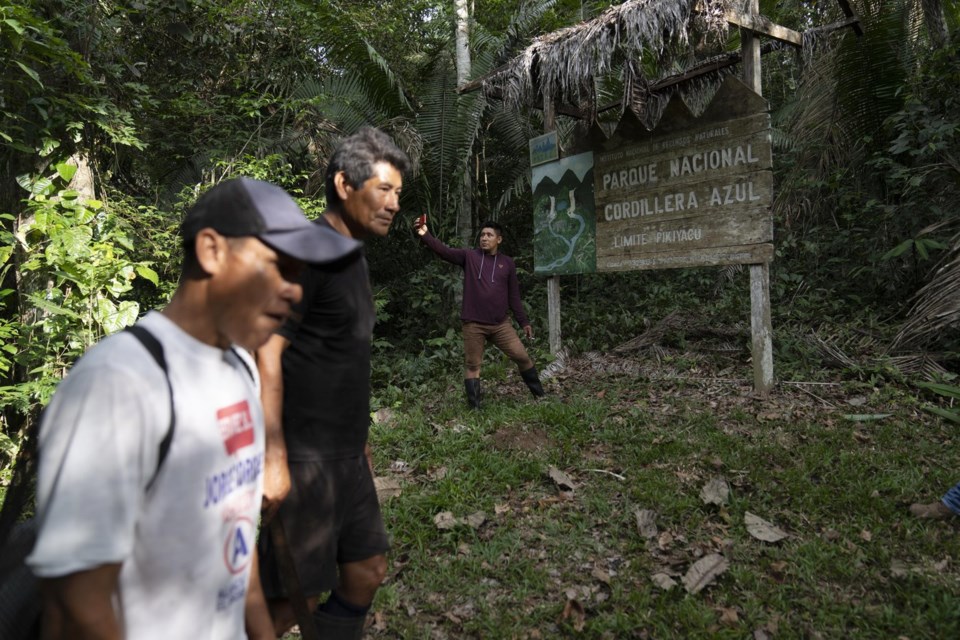BOGOTA, Colombia (AP) — A civil court in Peru has issued a landmark ruling recognizing the territorial rights of the Kichwa people within a protected area in the Amazon — marking a major breakthrough for Indigenous land claims.
The decision affirms that Indigenous stewardship is fully compatible with conservation goals, setting a powerful precedent for rights-based forest protection in Peru, according to the Kichwa people and lawyers involved in the case.
The ruling, issued on May 15 but made public on Wednesday, came after a legal challenge by four Indigenous organizations on behalf of Kichwa communities in the San Martín region. The communities say the state denied their ancestral presence for decades, creating protected areas without consultation or consent.
“The ruling validates their historical presence and their right to demand respect for those territories,” Cristina Gavancho, legal adviser to the plaintiff organizations, told The Associated Press on Thursday. “It recognizes that in doing so, they not only contribute to conservation but must be involved in any state-led measures to implement it.”
Environmentalists say the case could reshape how Peru approaches forest protection, especially in contested areas like — home to one of the world’s largest forest carbon offsetting projects.
SERNANP, the Peruvian government agency responsible for protected natural areas, didn't immediately respond to a request for comment.
Gavancho said that the ruling could have global relevance, as it reinforces growing international recognition of the role Indigenous peoples play in conservation. She noted the decision aligns with international biodiversity targets and signals a shift away from top-down conservation models.
“Conservation isn’t just about creating protected areas — it’s also about recognizing and protecting Indigenous territorial rights,” she said.
Wiler Saurin, vice president of the Indigenous coalition CODEPISAM in Peru’s San Martín region, said that the ruling is a major victory in the long struggle for recognition of ancestral lands. He emphasized that protected areas in San Martín were established without free, prior and informed consent from the Kichwa, Shawi, and Awajun peoples.
Saurin, from the Kichwa community, told the AP by telephone that the court decision affirms Indigenous territorial rights and underscores that conservation can't happen without Indigenous inclusion.
“You can’t do conservation from a desk, you can’t do conservation from an office earning a good salary — it has to be done by working with the communities who have ancestrally occupied these territories,” he said.
___
The Associated Press’ climate and environmental coverage receives financial support from multiple private foundations. AP is solely responsible for all content. Find AP’s for working with philanthropies, a list of supporters and funded coverage areas at .
Steven Grattan, The Associated Press




